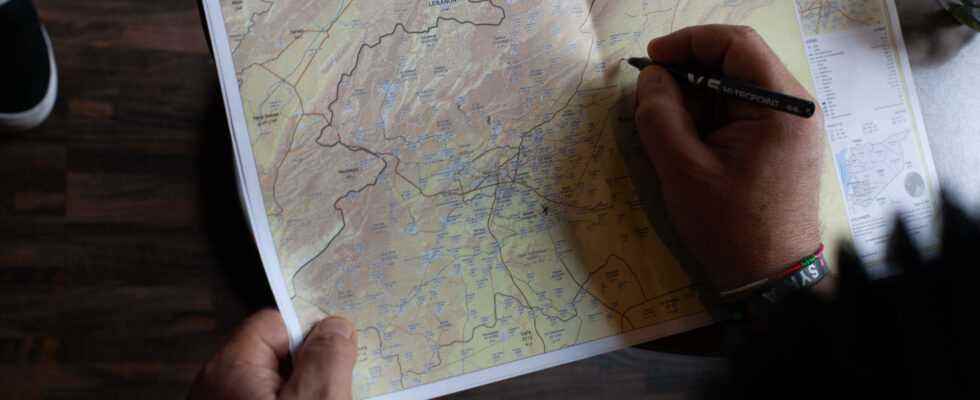Repress, torture, kill. This, the regime of Bashar Al-Assad knows how to do with an efficiency that is no longer to be demonstrated since the beginning of the revolution, in March 2011. But killing is not enough, we must also get rid of the bodies. Corpses are always a problem for totalitarian regimes, at least a logistical problem. two stories, The world collected and cross-checked, make it possible to understand the way in which the Syrian regime secretly buried the bodies of tens of thousands of victims, killed in jails and interrogation centers, in demonstrations or fights, or even died as a result of their injuries to the hospital. They are essentially civilians – and not rebel fighters – caught up in the death machine that was set in motion in 2011 to prevent and crush the uprising that demanded the liberalization of the regime.
These two stories are the work of Syrian refugees settled in Germany, in the Berlin region. The first, whom we will call “the Gravedigger” for security reasons, arrived across the Rhine in 2018: his job was to supervise clandestine burials in mass graves at the head of a small team of about fifteen local administration funeral directors in Damascus. He practiced from 2011 to the end of 2017. Tens of thousands of corpses paraded before his eyes.
The second, who arrived in Berlin in 2016 with the great wave of refugees, was driving a bulldozer. He was in charge of digging the mass graves and sometimes pushing the bodies into them with his blade. He practiced from the summer of 2011 to the summer of 2012, before being imprisoned for just over a year. This will be “the Driver”. The two men knew each other by sight in Damascus, where they worked at the same site, but have not seen each other since they have been living in Germany. However, their stories agree and complement each other perfectly.
The Gravedigger testified at the trial in Koblenz (western Germany). At the end of a historic procedure, German justice condemned in January the former colonel of state security Anwar Raslan to life imprisonment for “crimes against humanity”, and Eyad Al-Gharib, a junior officer , to four and a half years in prison. The two men, who had moved to Germany, were arrested after being recognized by former prisoners of Branch 251, one of the regime’s most sinister detention and torture centers.
The Gravedigger’s testimony was never refuted by defense attorneys, who only disputed the fact that he testified on condition of anonymity. “For the court [de Coblence] and the international community, this testimony is very important, explains Antonia Klein, head of international crimes and responsibility at the European Center for Constitutional and Human Rights. The court was able to observe that the number of victims continued to increase during the first year of the revolution and the witness was able to testify to the suffering inflicted on them by describing the state of the bodies and their large number. . Equally important, it corroborates the elements of the César file [les photographies de plus de 6 000 personnes tuées en détention qui ont été sorties clandestinement de Syrie par un photographe des services secrets] whose images were released by the court and analyzed by medical experts. »
You have 82.71% of this article left to read. The following is for subscribers only.
